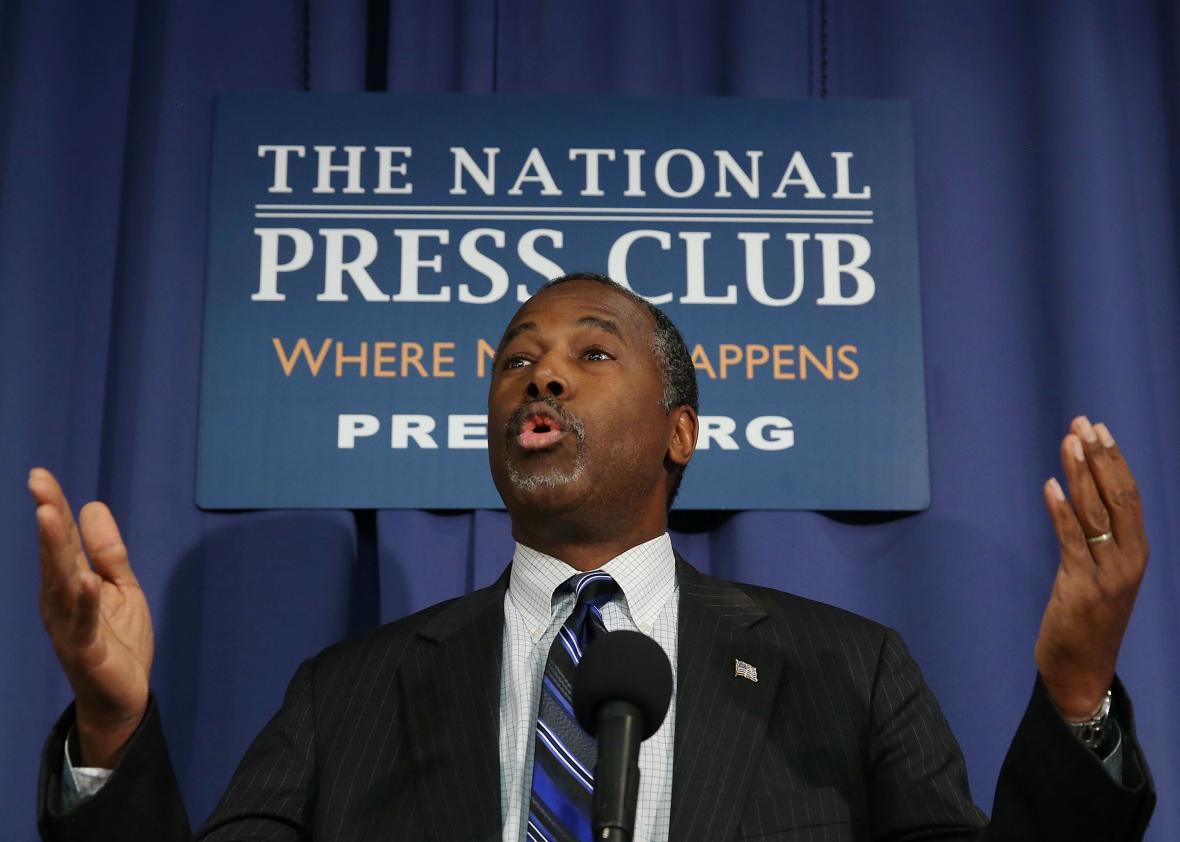Ben Carson hasn’t had a plausible path to the nomination in months. It seems that in the aftermath of Super Tuesday, he’s finally accepted that reality. The Washington Post reports that the former neurosurgeon will tell his supporters on Wednesday that he doesn’t see a “path forward” in the race, and that he will not take part in Thursday’s Republican debate in Detroit.
There’s a catch, though (emphasis mine):
Carson, however, will not formally suspend his campaign. Instead, the Republicans said, he has decided to make a speech about his political future on Friday at the Conservative Political Action Conference in Maryland, just outside of Washington.
It’s unclear if he’ll make his exit official during that speech, or whether he’ll drag things out a little longer. Regardless, his candidacy is effectively now over—or, I suppose, even more so than it already was. Carson briefly topped the national polls this past fall. His rise, though, brought increased scrutiny—and skepticism—of his personal tale of redemption that was at the center of his campaign. He was initially able to weather that media storm, but his problems were compounded when shortly thereafter the Paris attacks shifted the national conversation to foreign policy, a topic he proved unable to master.
Carson was largely a nonfactor both on the debate stage and in the actual nominating contests. His exit, though, could still impact the race. He fared no better than fourth on Super Tuesday in what were five-man races, but he did win enough of the vote in several states that his absence could have theoretically shifted the outcome one way or the other. In Arkansas, he won nearly 6 percent of the vote—greater than the 2-point gap between first-place Donald Trump and second-place Ted Cruz. In Oklahoma, meanwhile, he won about 6 percent of the vote—roughly equivalent to the gap between winner Cruz and runner-up Trump. Still, it would be a mistake to assume that his supporters will move en masse to a single Republican candidate. The more likely outcome is that they splinter among several of the remaining candidates.
Read more of Slate’s 2016 campaign coverage.
